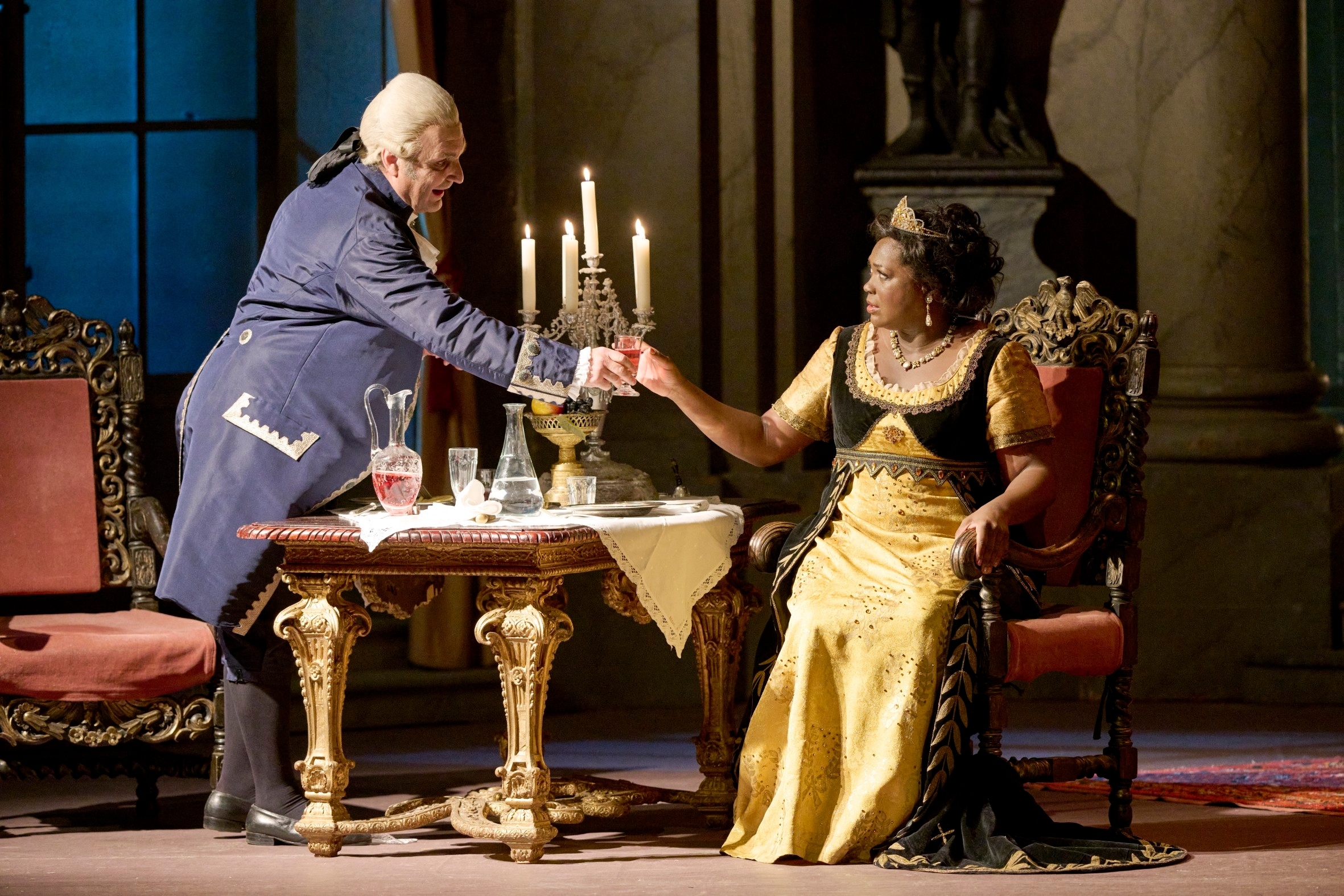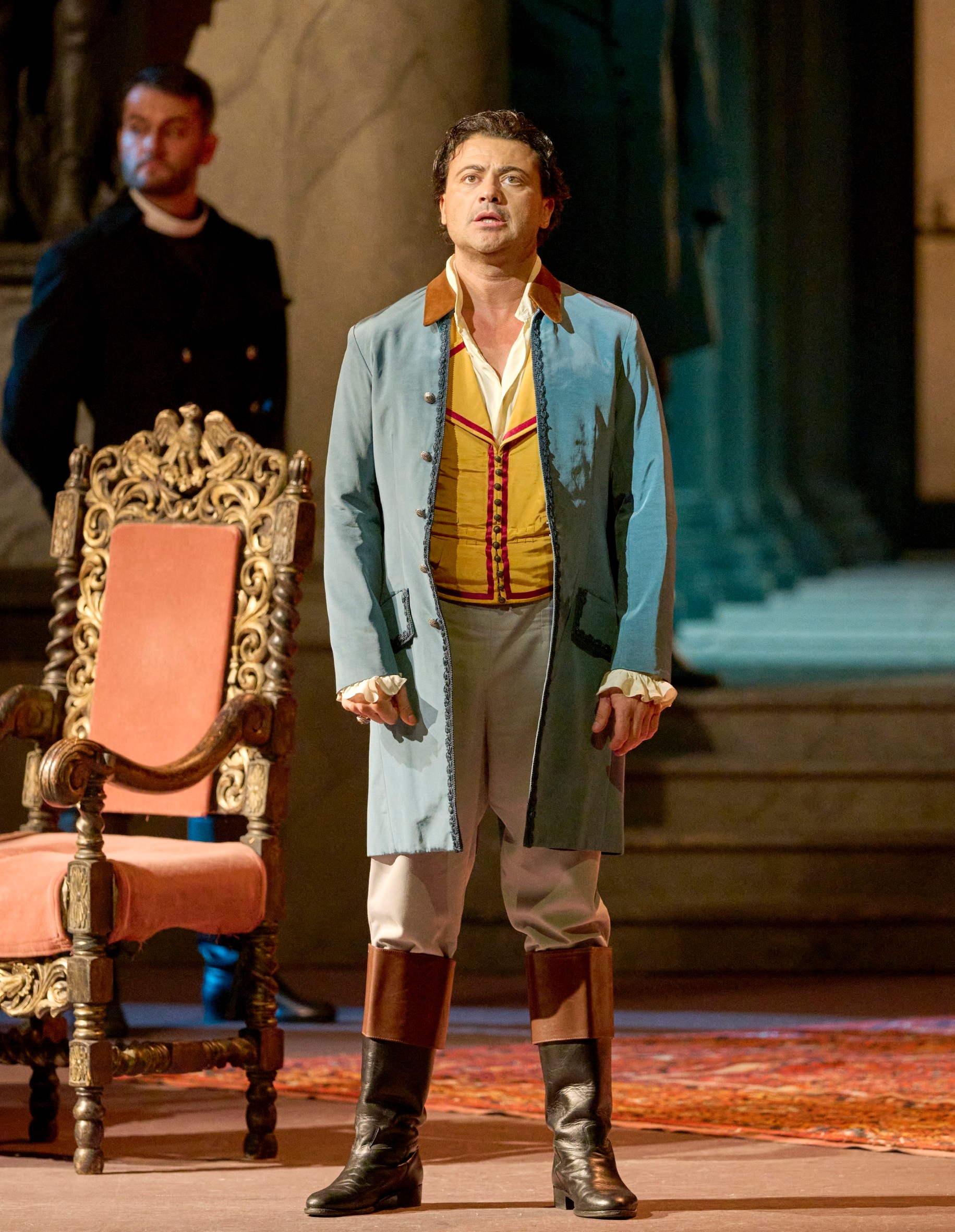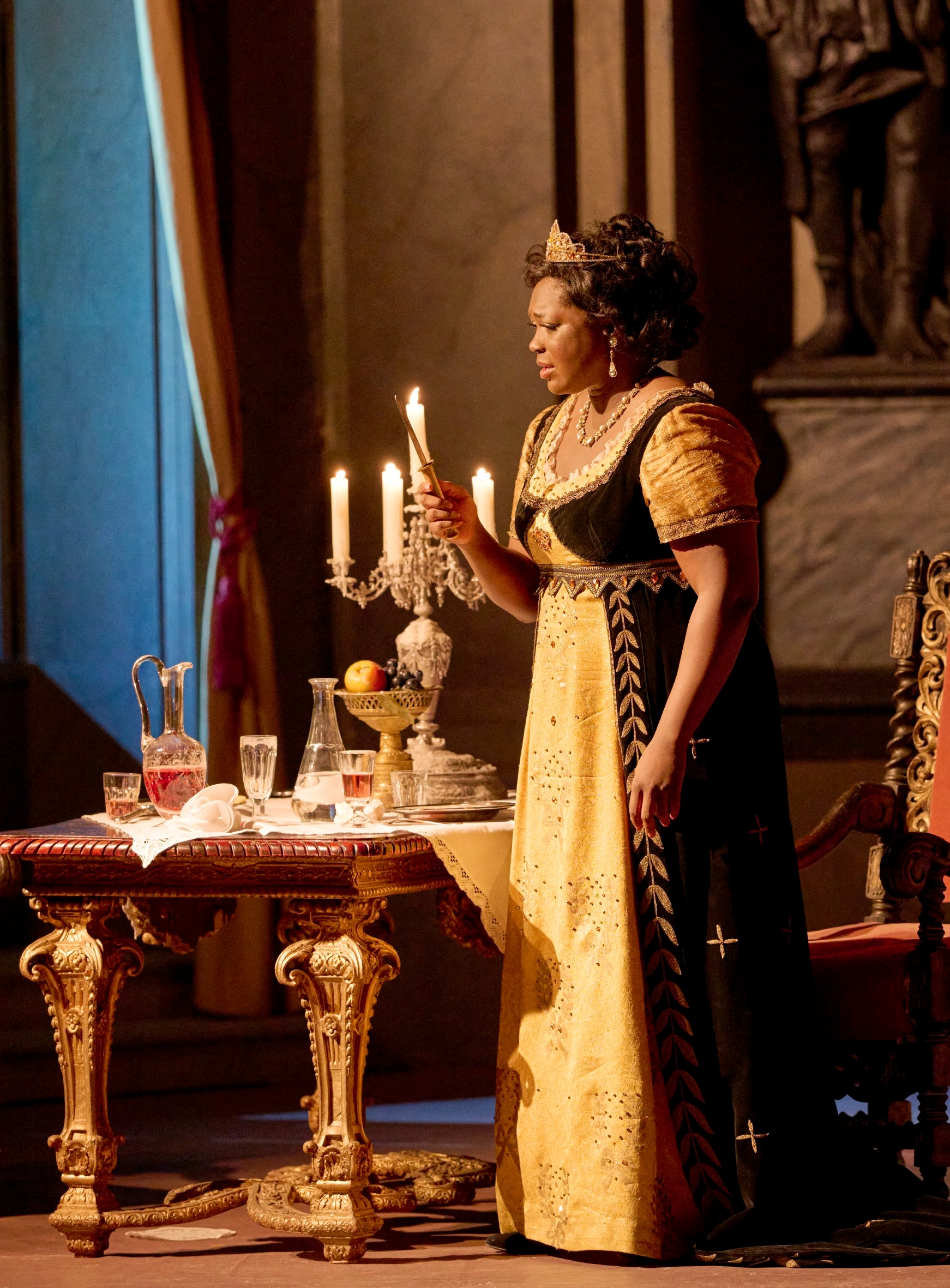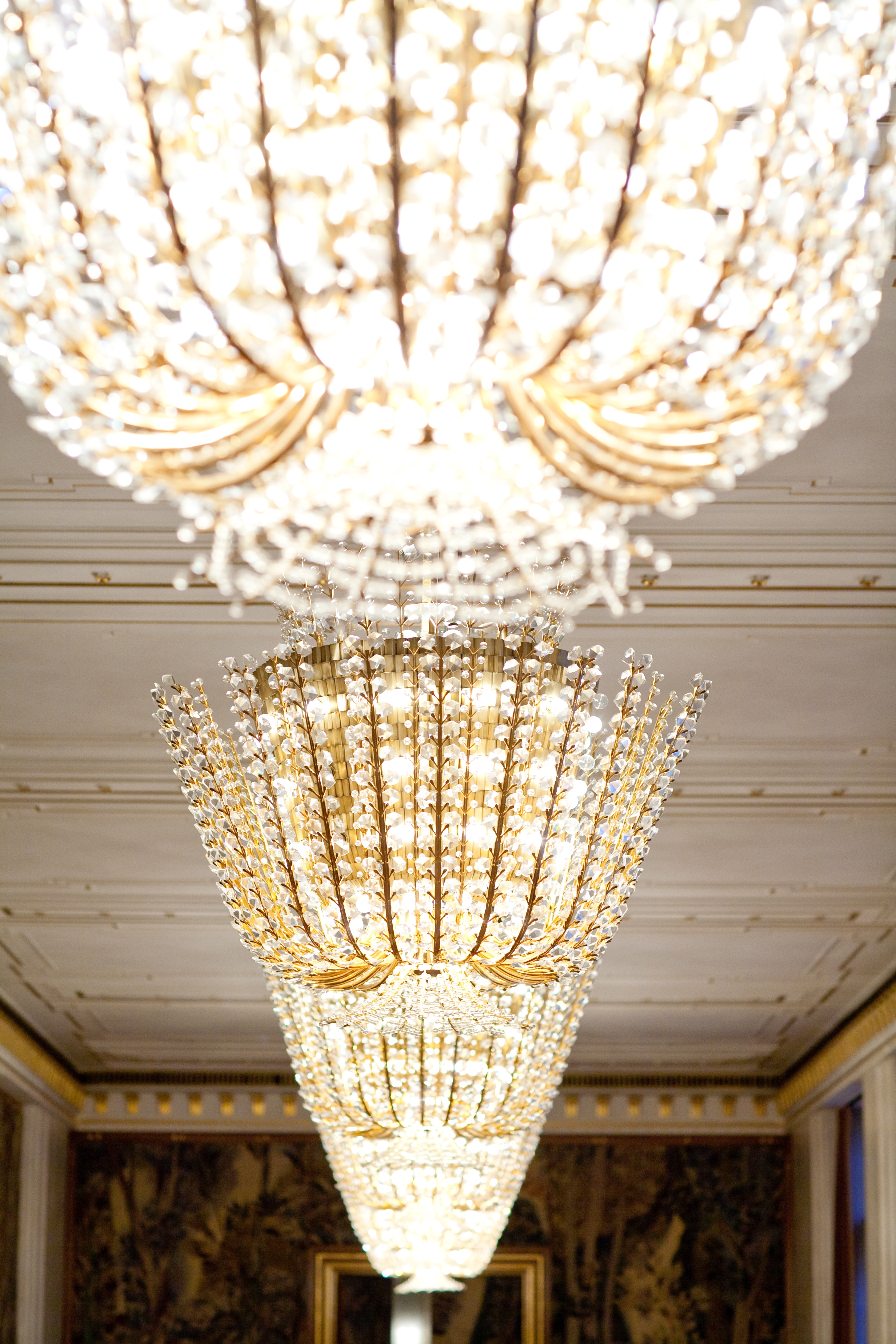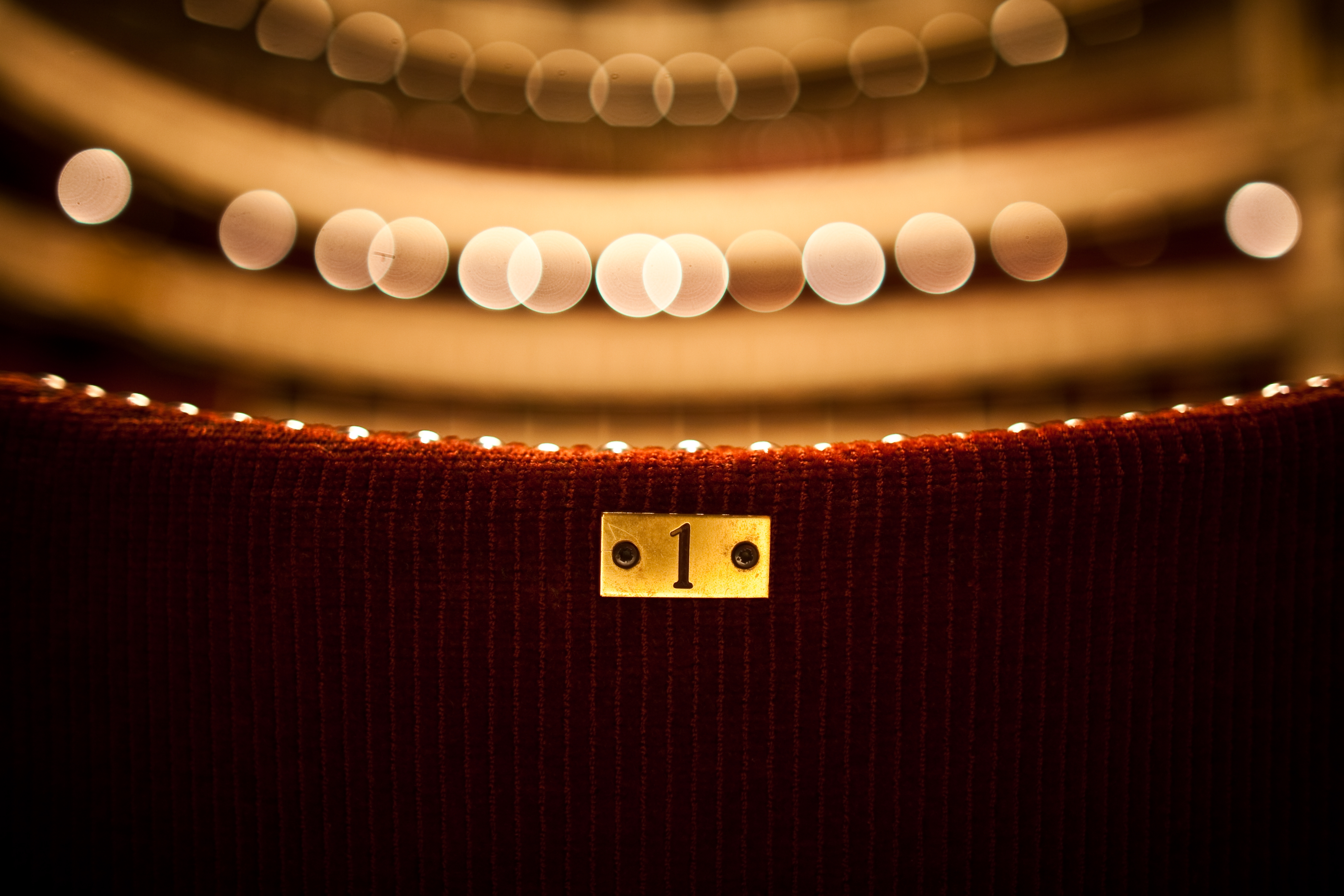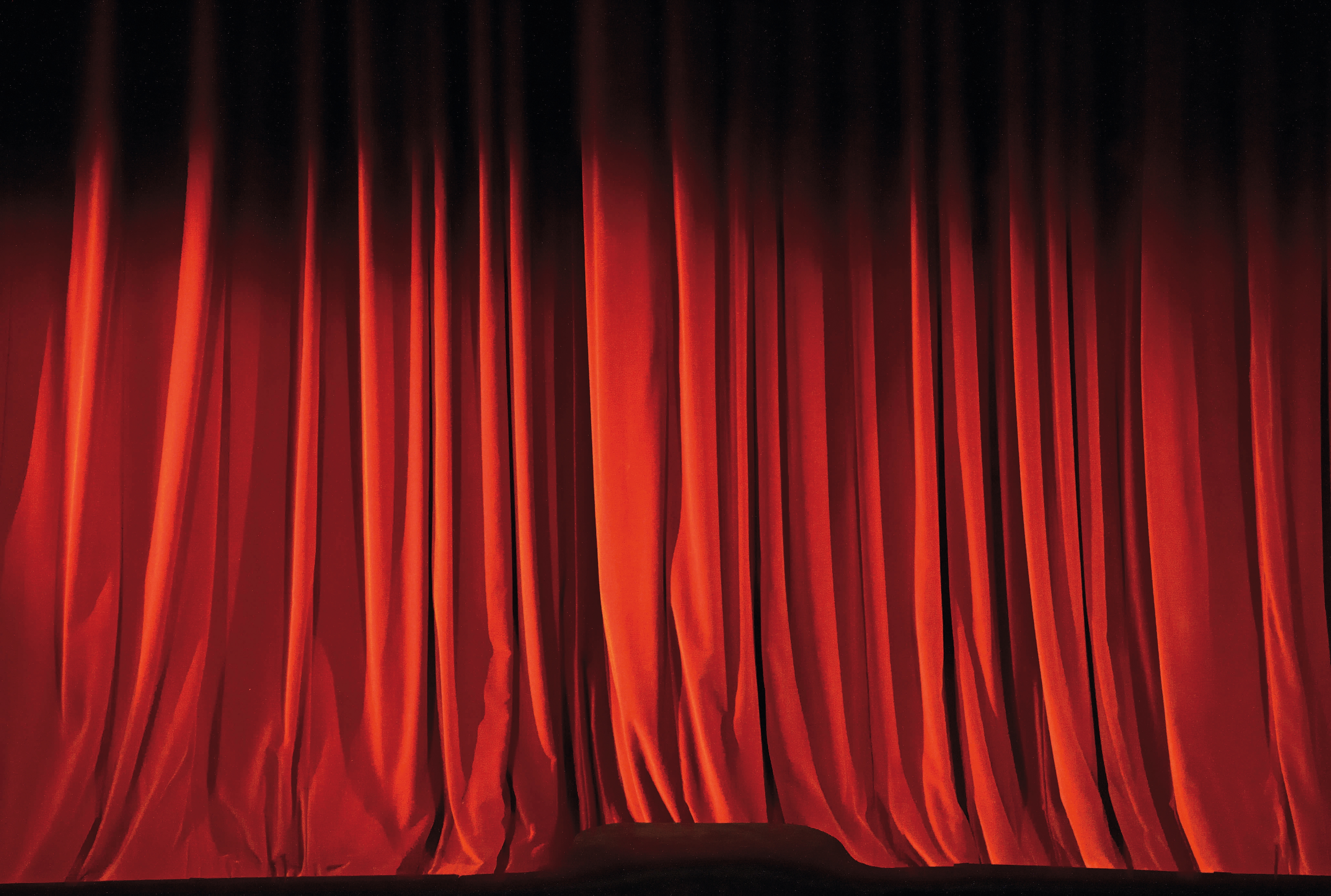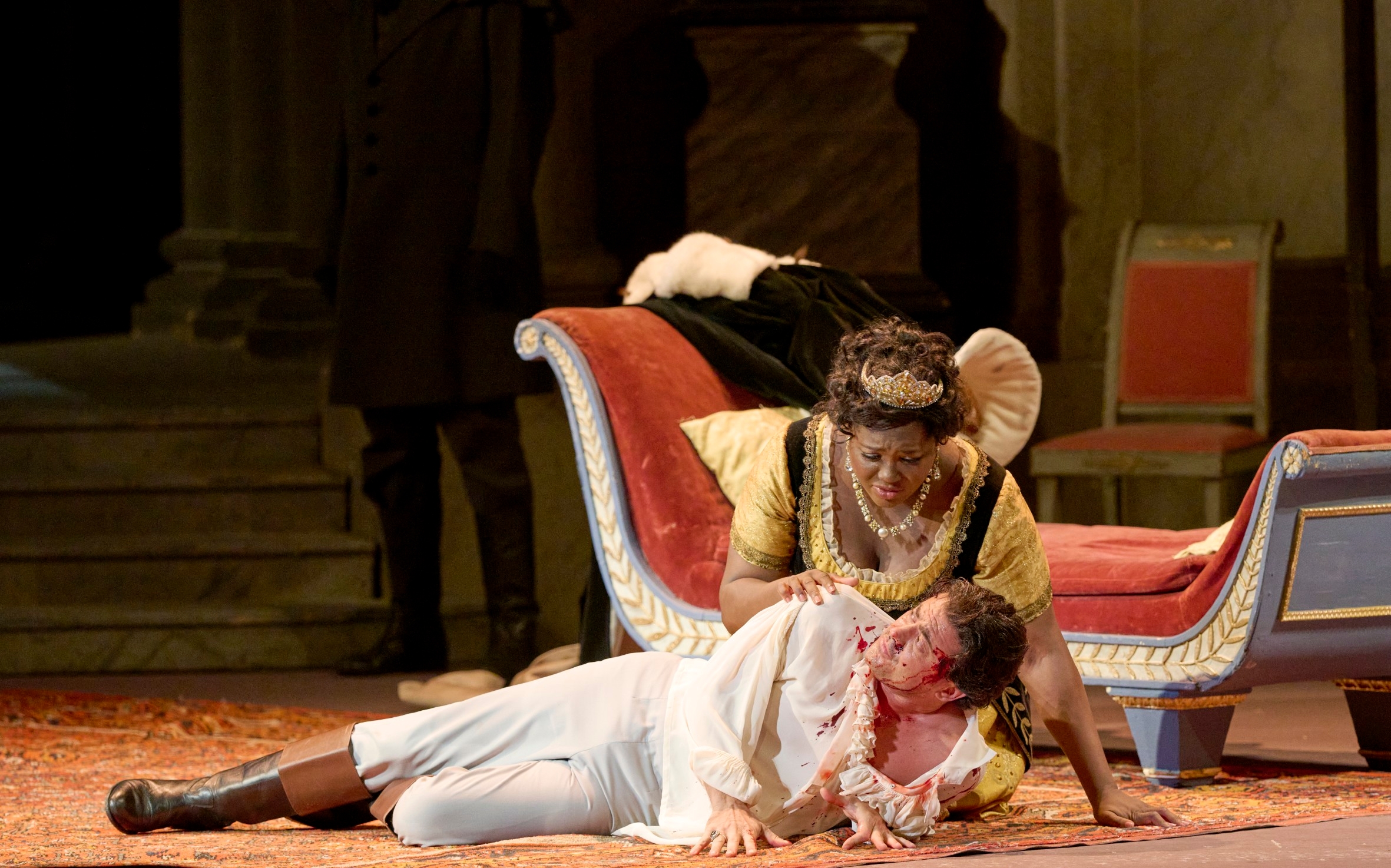
Short Summary
The former consul Angelotti has escaped from captivityin the church of Sant'Andrea della Valle, he meets the painter Mario Cavaradossi, who helps him.
But the chief of police, Scarpia, manages to track Cavaradossi down: He is to be executed. To save him, Scarpia demands physical devotion from Tosca, Cavaradossi's beloved. She agrees, receives the promise of a mock execution - and murders Scarpia. However, he has betrayed her and Cavaradossi is actually shot. For Tosca, life has become meaningless and she throws herself off Castel Sant'Angelo.
Tosca
Storyline
Rome in 1800: Angelotti, consul of the former Roman Republic, has escaped from Castel Sant'Angelo, where he was imprisoned. In the church of SantʼAndrea della Valle, he meets the painter Mario Cavaradossi, a Republic sympathizer, who promises to help him.
In addition, his sister, the Marchesa Attavanti, has left him women's clothes in her family chapel as a disguise. Floria Tosca, a famous singer and Cavaradossi's jealous lover, arrives to arrange a night of love with the painter in her villa.
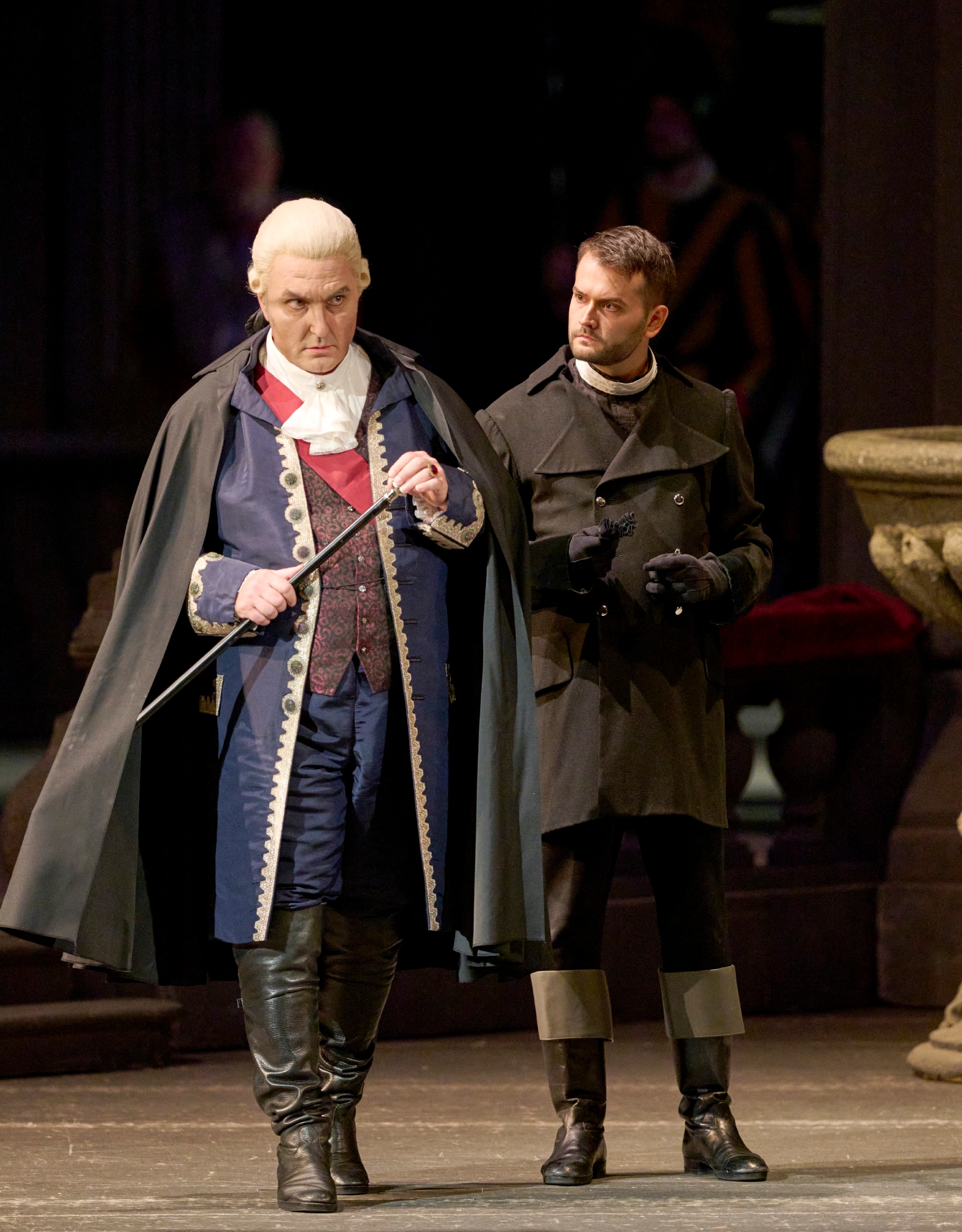
She discovers that the painting Cavaradossi is working on bears the features of Attavanti. Only after the painter has managed to appease her jealousy and she has left the church again can Cavaradossi and Angelotti plan the former consul's escape: he is to hide on Cavaradossi's estate. A cannon shot reveals that his escape from Castel Sant'Angelo has been discovered and Cavaradossi accompanies Angelotti to the hiding place. In the church, the supposed victory over Napoleon at Marengo (and thus the setback of republican aspirations) is celebrated.
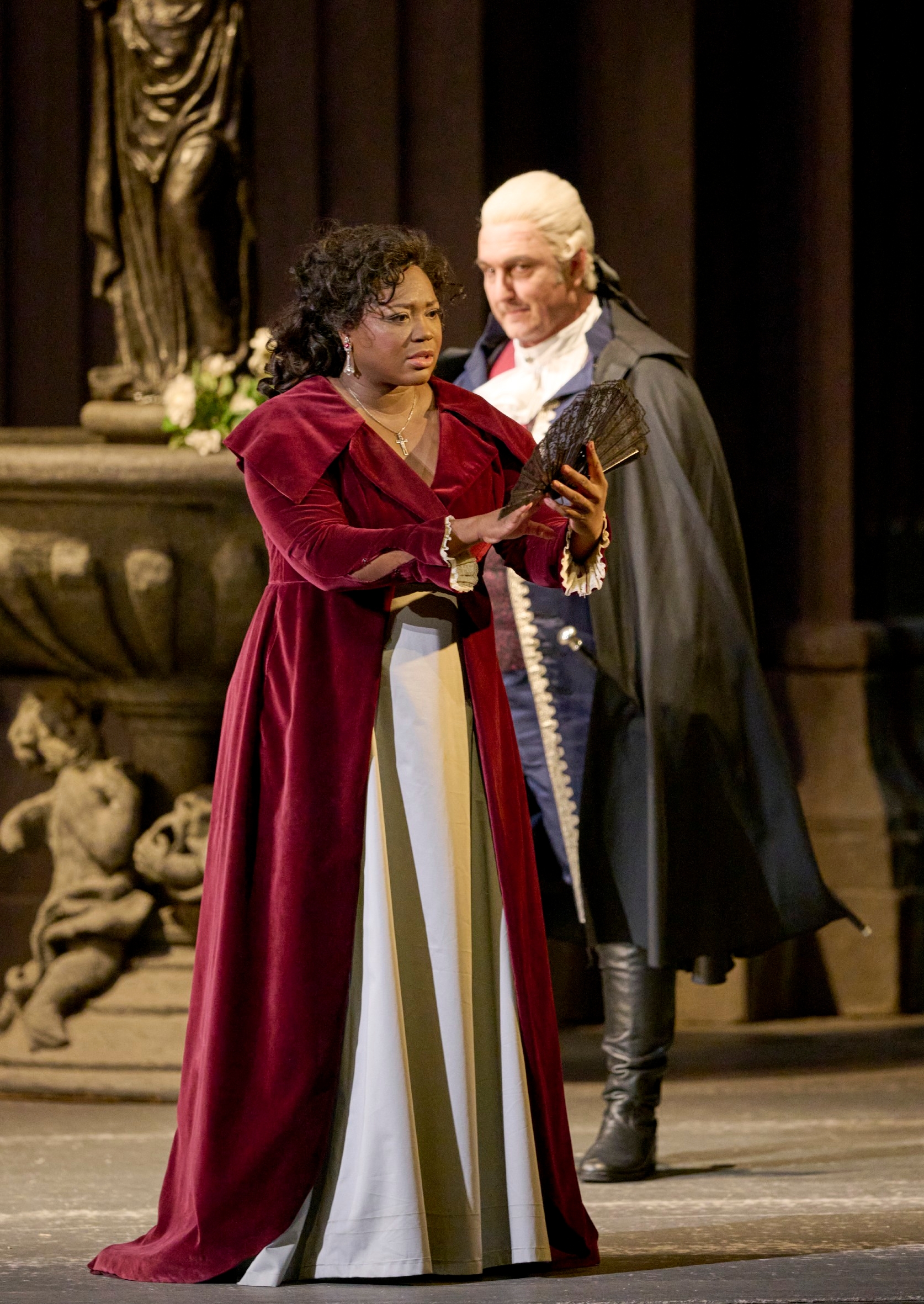
The brutal police chief Baron Scarpia, who hopes to discover clues to Angelotti's escape in the church, interrupts the celebration. Using a fan left behind by the Marchesa Attavanti, he succeeds in stirring up the jealousy of the returned Tosca, who then rushes to Cavaradossi to convict him of infidelity. Scarpia's henchmen follow her. In a diabolical monologue, Scarpia muses on his desire to possess Tosca and to see Cavaradossi dead.
For many viewers, Margarethe Wallmann's /Tosca/ production is a particularly successful and atmospheric production. It is the oldest directorial work in the Haus am Ring (premiere in 1958) - but the magic of this traditional production remains unbroken. The love story of Cavaradossi and Tosca and the political plot are impressively interwoven in vivid and effective images, while the stage space and costumes by Nicola Benois testify to a visual language that is as clear as it is impressive. For generations of Viennese opera-goers, Wallmann's production is the quintessential Tosca production. The production is given an additional attraction by the impressive number of well-known artistic personalities who have appeared before Viennese audiences in memorable performances under precisely this direction, in precisely these sets and in precisely these costumes.
In this opera, Giacomo Puccini played off the spheres of art and politics against each other and created a masterpiece of dramatically gripping music, but also enchanting beauty. Arias such as "E lucevan le stelle" and "Vissi d'arte" are not only among the most famous moments of the work, but have also become icons of opera history.
Giacomo Puccini's Tosca, first performed in Rome in 1900, is based on the play La Tosca by Victorien Sardou, a notorious colportage play at the time, which Sarah Bernardt successfully performed in the title role. Puccini's opera takes place on two very specific days: on June 17, 1800, a Tuesday, and at dawn on the following Wednesday. The three locations of Tosca - the church of Sant'Andrea della Valle, the Palazzo Farnese and Castel Sant'Angelo - are actually existing buildings in Rome. The composer is also said to have listened to the bells at the beginning of the third act in the city: he obtained physical-acoustic information about the sound of the bells before starting the composition.
